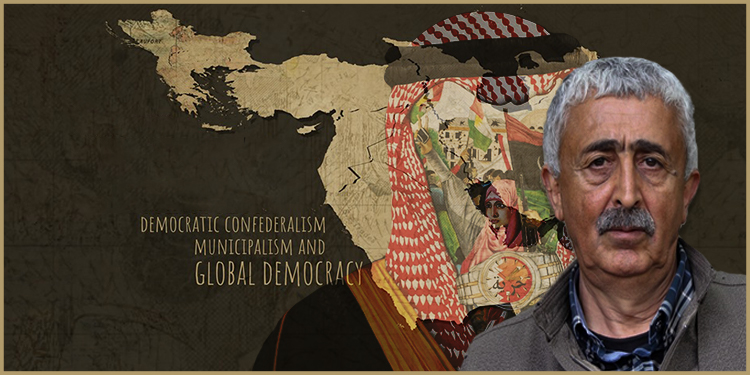CENTRAL NEWS – Riza Altun, Member of the Executive Council of the Kurdistan Communities Union (KCK), about the structural crisis of capitalism, the current political conditions worldwide and today’s challenges of internationalism. The text is the result of a conversation with a delegation to South Kurdistan in August
2018.
“The consequences of the crisis can be felt in different ways in different parts of the world. For some time South America was a centre of crisis to which international politics devoted its attention. Later it was Eastern Europe and the Balkans. Then the Caucasus. All these are regional manifestations of the general structural crisis of the system. Interventions and wars took place in all these parts of the world. But it was not possible to develop far-reaching solutions. The crisis could therefore not be overcome. The most recent expression of the general crisis is the chaos in the Middle East. Especially since the collapse of the Soviet Union, the crisis has gradually deepened and expanded. From time to time it openly leads to wars. The current situation in the Middle East is an expression of these conditions. Those who follow the situation closely can see the following: The system is looking for ways out of the crisis. Each imperialist country designs and pursues its own plans to overcome the crisis. They are in contradictions and struggles with each other. At the same time, they are competing on a global level, creating global chaos.”
“In order to understand what is currently happening in the Middle East, one must understand the perspective and situation of the global system. The general situation in the Middle East is neither isolated from the global system, nor are current events in the Middle East independent of the global system. On the contrary, current developments are the regional expressions of the global systemic crisis. Since the Middle East is much more autonomous historically, socially, and in the nature of its status quo, the contradictions emerge in such a massive way that the region becomes a centre of conflict. The Middle East and the Asian region must not be equated with other parts or countries of the world. The situation here is very peculiar. Without securing supremacy over the Middle East, one cannot establish a global system, nor make any changes to the existing system. After all, this region is marked by its very own events. Historically, the Middle East is the region with the oldest traces of social life. It is the centre of social development and the oldest civilisations, much older than in Europe and other parts of the world. Deeply rooted cultures and social structures exist here. As the capitalist contradictions come together with the historical contradictions of the region, the current chaos arises. This is why the region has become a centre where the destiny of the world will be decided.”
“After the collapse of the Soviet Union, the USA became the only global superpower. Its current position looks something like this: In the past it lived out the drunkenness and comfort of a superpower, but today it feels the responsibility that comes with its position. The collapse of the Soviet Union also meant that from now on there was no alternative power to the USA. Liberal capitalism proclaimed its victory and declared itself to be ‘the end of history’. The fact that this was not the case became clear shortly afterwards. After all, the crisis of capitalist modernity has reached a very large scale. The global problems are very comprehensive and profound. In the past, the existence of the Soviet Union led to a balance. With the dissolution of this equilibrium, all existing problems came to light. The USA became the sole responsible entity for all these problems. Thus, step by step, the real problem was understood. It is important to see what form the world system took after the end of the Soviet Union. The events of the past 500 years represent a great chaos anyway. Therefore, it was necessary to find a new form for the system in order to find ways out of the crisis. Otherwise it would have been impossible to overcome chaos. Everything began to shake back then. On the one hand, the drunkenness of success, on the other hand, the inability to develop solutions to the constantly emerging problems and the associated hopelessness. The phase at that time was characterised by this interesting mixture. Of course, it was attempted to overcome this situation in the course of time. But all the attempts at a solution at that time were nothing more than the repetition of the past. On the one hand, the demonstration of political-military hegemony, violence and economic pressure tried to force everyone to follow. On the other hand, with limited reforms, attempts were made to introduce certain innovations within capitalism. Thus, it was a very interesting opportunist attitude. Both approaches do not lead to viable results, because while the USA tries to establish a new balance according to its own interests, the old conditions resist against that. While, for example, certain relaxations and renewals are carried out at the level of the nation states, resistance arises against them. This in turn prevents a solution from being found.”
READ THE FULL PDF HERE: Riza Altun- strategic allies translation




